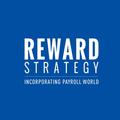Three-quarters of UK employees admit to workplace complacency
Lack of motivation most prevalent among younger generations

New research reveals that three-quarters (75%) of UK employees admit to being complacent at work, with complacency levels highest among younger generations.
According to a new report from Prezzee, 85% of Gen Z and 82% of millennials feel at least somewhat complacent in their roles. Worryingly, nearly a fifth (18% of Gen Z and 22% of millennials) admit they are “very complacent” effectively going through the motions at work.
Complacency linked to boredom
The survey highlights a clear correlation between boredom and complacency. Two-thirds (64%) of UK employees say they are at least somewhat bored at work. The sectors reporting the highest levels of complacency include IT (83%), healthcare (80%), and — perhaps most concerning for organisational culture — HR (79%).
Work setting also appears to play a role. Hybrid workers (80%) and fully remote staff (77%) are more likely to feel complacent compared to those fully in-office (72%).
Rewards as a motivator
The findings suggest that employers can counteract disengagement by recognising and rewarding employees in more meaningful ways. Nearly four in five (79%) employees said they would feel more positive towards their employer after receiving a small but thoughtful reward.
Generational differences were also evident: millennials (85%) were the most appreciative of rewards, while baby boomers (65%) were the least. Crucially, the research found that rewards are most effective when they feel personal — tied to a specific achievement or accompanied by a message of thanks.
The power of meaningful gestures
James Malia, president of UK and Europe at Prezzee, said:
“A significant portion of the UK workforce is simply going through the motions. That isn’t a criticism, but it shows a trend of people who are feeling overly comfortable in their roles.
The antidote to this is not always a major structural change or a large bonus. What employees are telling us is that small, meaningful gestures of appreciation can have a massive impact.
A flexible reward, like a monthly voucher for a coffee chain, or a more sizable gift card at the end of a challenging campaign, empowers employees with choice. It shows them their contribution is genuinely valued, and makes them feel part of the team, which is critical for turning complacency into motivation and boosting loyalty.”
With complacency rife across industries and especially among younger generations, employers face a pressing challenge: how to re-engage staff who are comfortable but uninspired. The evidence suggests that meaningful, personalised recognition, not necessarily costly interventions, may be one of the most effective ways to drive motivation and foster long-term loyalty.
 Reward Strategy
Reward Strategy